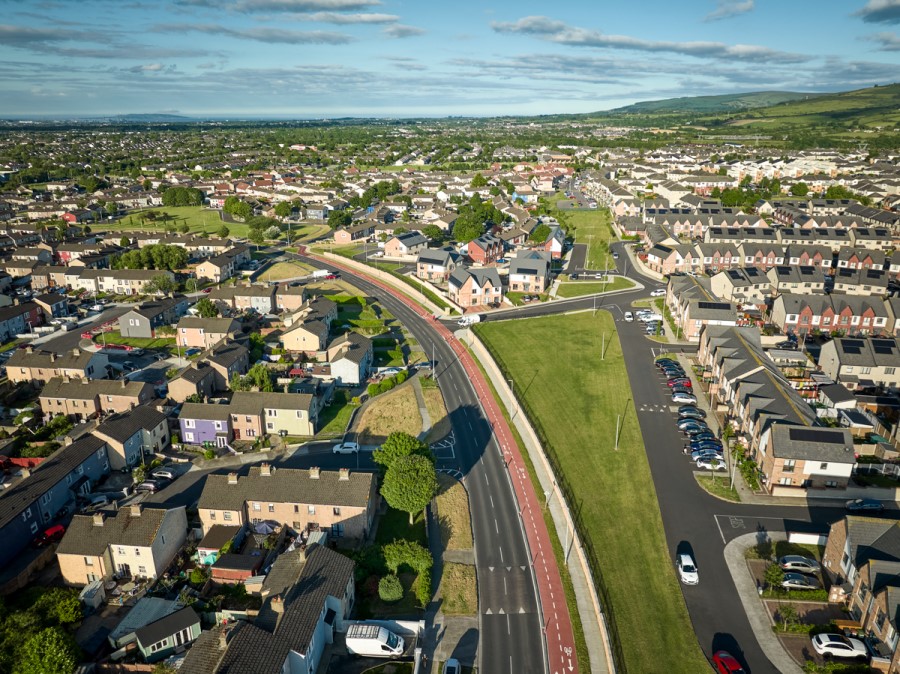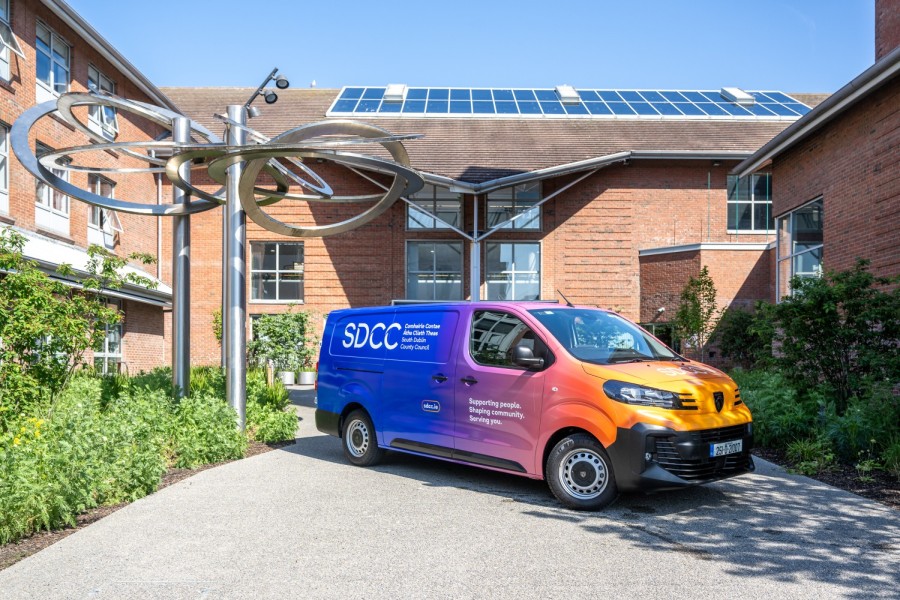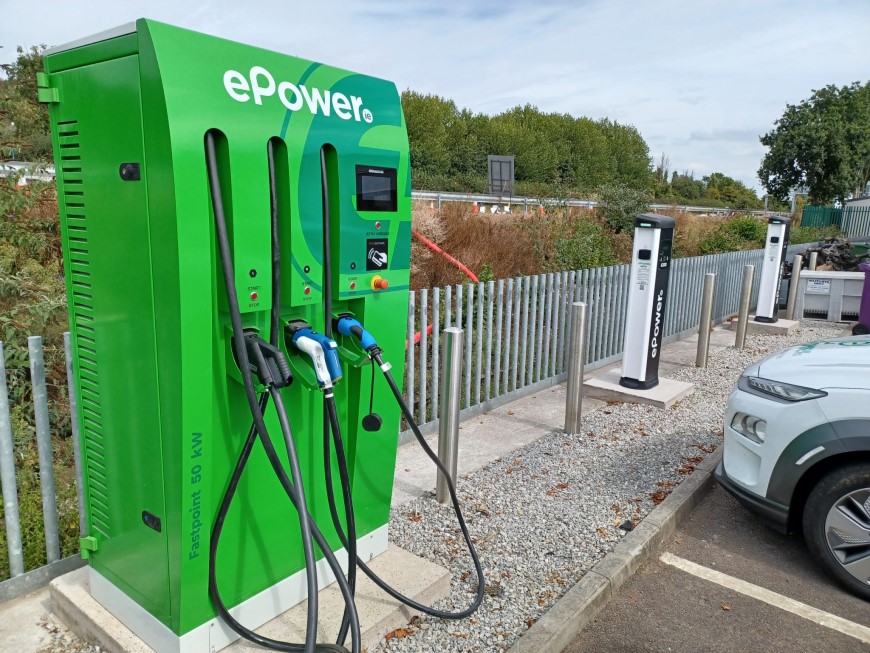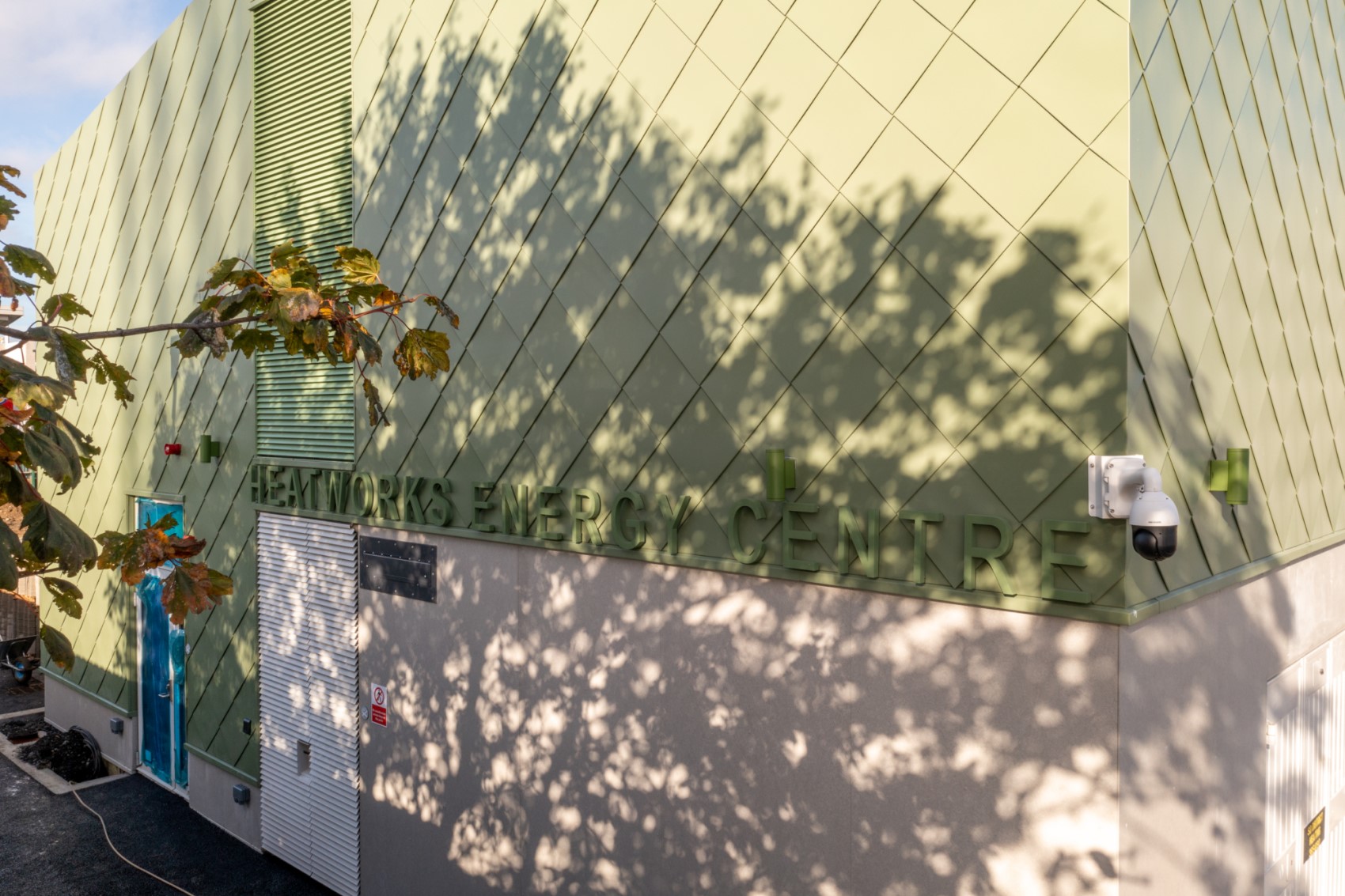Reducing our Transport Emissions
Transportation has a critical role to play in our approach to climate change, as it contributes to a significant amount of greenhouse gas (GHG) emissions. In South Dublin, the transportation sector is a large contributor to GHG emissions, with an estimated 34% of our total emissions. How we choose to travel for work, education, shopping or leisure has a big impact on Ireland’s and South Dublin's GHG emissions, so there are plenty of opportunities for positive change.
Active Travel
Since 2022, South Dublin County Council has spent almost €60 million on active travel infrastructure in the county. A budget allocation of €21.9 million was made available for Cycle South Dublin Projects in 2024 and a dedicated team of technical and administrative staff manage the delivery of active travel projects. 22.53 kilometres of new and upgraded cycle lanes and 63,876 square metres of new & upgraded footpaths were delivered in South Dublin in 2024 by the Active Travel team.
Our dedicated Active Travel website contains a wealth of information on getting involved.
Click here to view active travel across Dublin.

Fig 1: Active Travel Route
Bike Parking
SDCC receives funding from the National Transport Authority for bike parking. To date, bike stands have been installed in over 40 sports clubs and schools and 5 public parks across Tallaght, Knocklyon, Templeogue, Rathfarnham, Bohernabreena, Clondalkin and Lucan. To date approximately 750 new bike parking spaces have been created in South Dublin.
SDCC Fleet Transition
In 2024, South Dublin County Council continued its transition from Internal Combustion Engine vehicles to more sustainable alternatives, supporting the goals set out in the Climate Action Plan 2024-2029. The Council is committed to increasing the number of electric and alternative fuel vehicles within its fleet. Key developments include:
- The addition of four new electric vehicles (EVs) to the fleet.
- The establishment of a new Fleet Management System to oversee the decarbonisation of approximately 247 vehicles and 450 plant items that need to be replaced over the next five years
- Continuing to transition to Hydrotreated Vegetable Oil (HVO) in our diesel vehicles. SDCC currently has 51 vehicles running on HVO.

Fig 2: SDCC's EV Vans
EV Charging
The Dublin local authorities continue to engage with Zero Emissions Vehicles Ireland (ZEVI), on implementing the Dublin Local Authority Electric Vehicle Charging Strategy 2022-2030. In 2024 ePower was announced as the provider of public electric vehicle charging infrastructure across all four Dublin local authorities. While the initial framework is for the provision of 15 sites across South Dublin, it is expected that over the next two years, some 200 chargers will be brought into operation around key destinations in the region. This collaborative effort will help pave the way for smoother infrastructure development, better resource allocation, and greater convenience for electric vehicle owners who may not have access to charging facilities at their home across the whole of County Dublin.

Fig 3: ePower Charger
Key Transport Data


